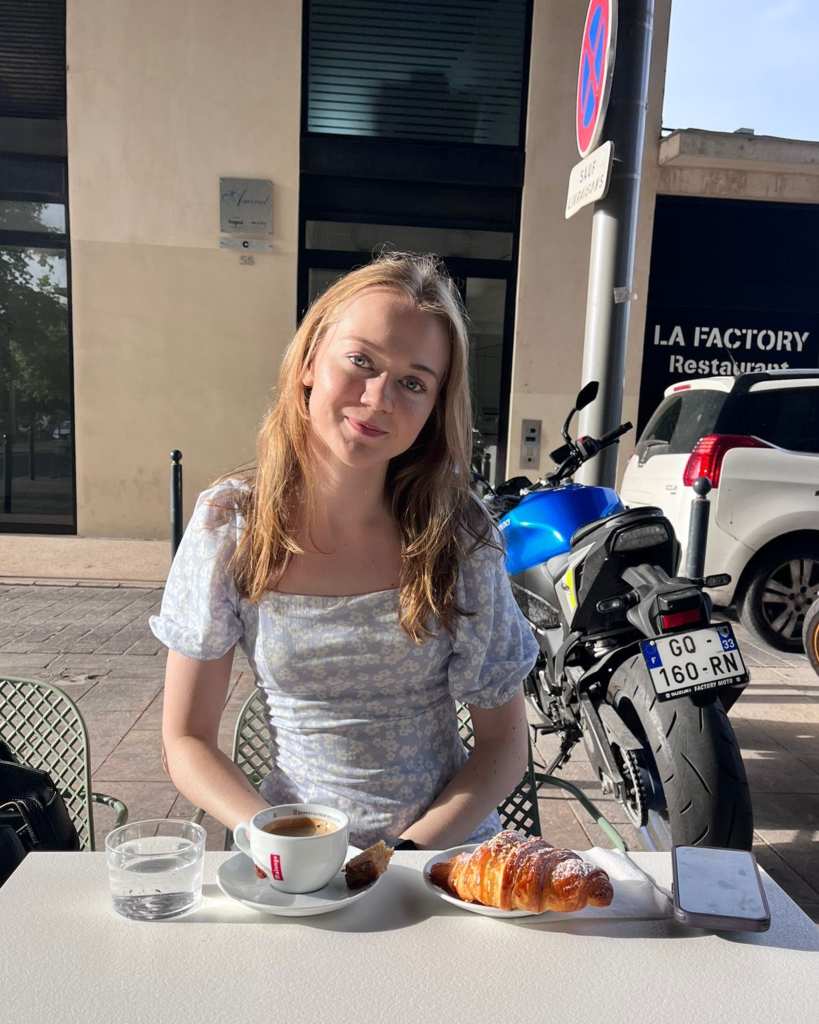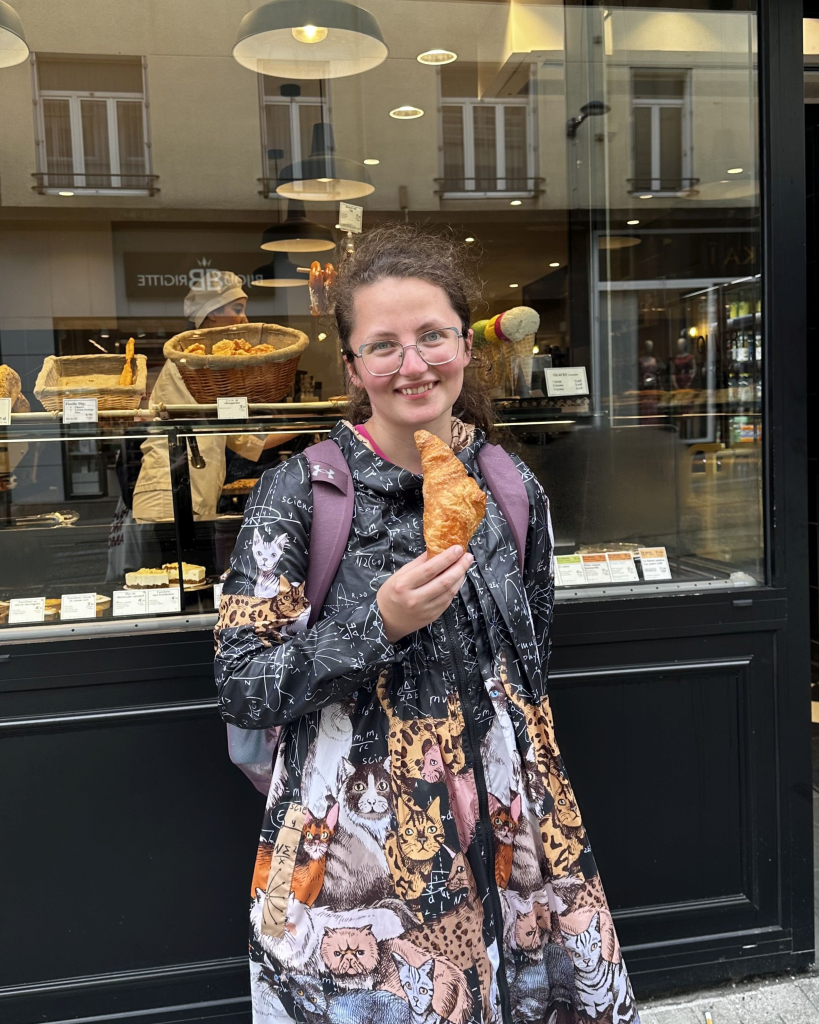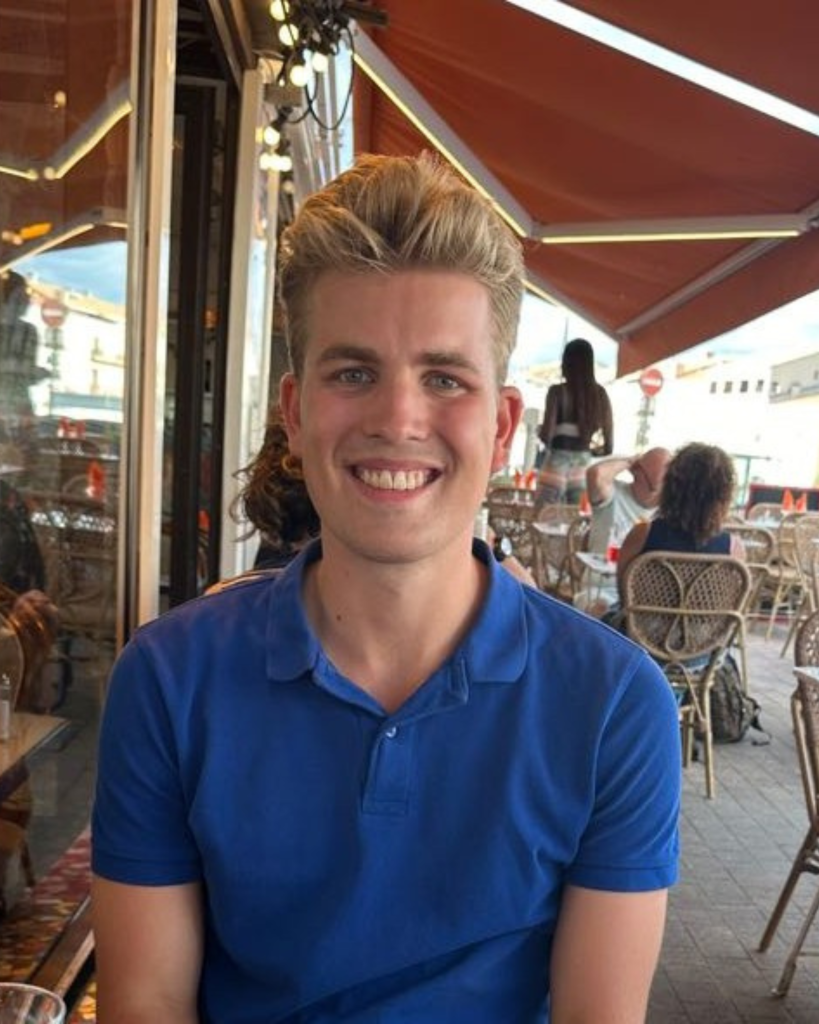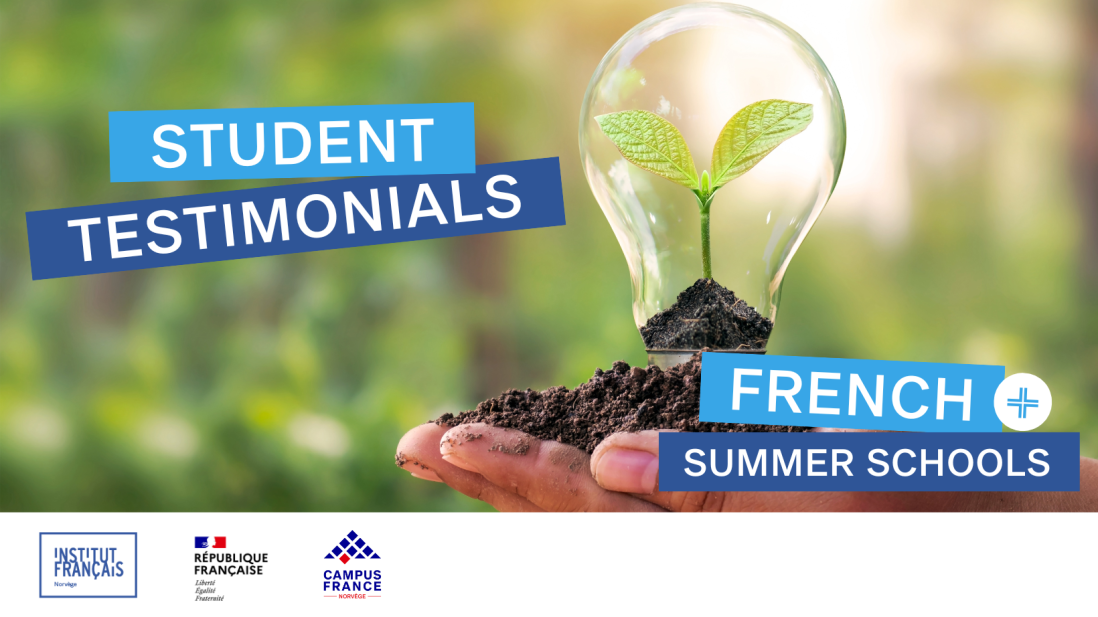Discover inspiring testimonials from students participating in the French+ program!
Are you interested in a unique academic and cultural experience in France? In this section, you’ll find testimonials from students who have taken part in the French+ summer school program. They share their journeys, motivations, and the challenges they faced. From improving their French language skills to immersing themselves in the local culture, these stories highlight the diverse experiences of students in France.
The French+ program not only offers a chance to study in a vibrant environment but also provides opportunities for scholarships, making it accessible for many. Whether you’re a beginner in French or looking to enhance your language skills while engaging in scientific themes, gastronomy, or outdoor sports, the French+ program has something for everyone.
Get ready for your French adventure!
Kristina, Recipient of the French+Sustainable Development Scholarship (Montpellier)
My name is Kristina, and I am 22 years old. I just finished my second year in cybernetic engineering and robotics at the Norwegian University of Science and Technology (NTNU). I applied for the scholarship because I am very interested in sustainable development, and I found that learning from professionals in different sectors is a rare opportunity.
Additionally, I attended high school in France, but I have forgotten a lot of French, so this program was perfect for refreshing my language skills.
During the three weeks of the program, we had French classes in the morning. In the afternoons, we went on various visits related to sustainable development. The French classes were quite varied: we had a different theme each week, where we learned vocabulary, read articles, had discussions, wrote texts, and listened to audio. The classes focused on student participation, which I really liked.

As for the sustainable development program, we also had a different theme each week. Related to these themes, we had a reading, a workshop, and a visit. So, during the three weeks, we covered topics such as adapting buildings to climate change, renewable energy, and agroecological transition. The workshops focused on the reuse of materials for construction, the installation of solar panels, and agroforestry. We also visited an eco-responsible residence, CIRAD (the agronomic research center for development), where we learned how to install solar panels.
One of the most interesting aspects of the program was the opportunity to meet students from all over the world. I learned a lot about different cultures, and the diverse perspectives made the class discussions very engaging.
I also enjoyed the French classes; my teachers were very skilled, and the themes of the classes were interesting. Regarding sustainable development, I appreciated the variety of content, as it provided me with a broader perspective on the challenges. The only thing I didn’t like was that we didn’t have more time to learn and to explore more of the region.
During this program, I made memorable connections in addition to learning a lot. I recommend that anyone interested in the French language and sustainable development apply for this unforgettable experience!
Polina, Recipient of the French+Science & Technology of the Sea Scholarship (Brest)
My name is Polina, and I am a biology student at Nord University in Bodø.
I am extremely grateful to the French Embassy in Norway for the opportunity to participate in the French+Science program in Brest, focused on marine science.
I am passionate about ecology and eager to learn more about marine science—not only from an academic perspective but also from an industry standpoint. I wanted to better understand how research can be applied to solve global challenges such as biodiversity loss and climate change, which motivated me to apply for the program in Brest.

During the program, we had the incredible opportunity to visit many fascinating places that would have been difficult to access on our own. My favorites included:
- The Museum of Algae in Plouguerneau – It was inspiring to see how many uses inconspicuous algae have and to learn that the local community created the museum 40 years ago.
- Museum of the Ocean – We gained valuable insights into marine research. I found it especially important that the museum serves as a bridge between science and the public, raising awareness about the oceans and encouraging their preservation. In the future, I would also love to communicate my research to non-scientists, and this museum provided an excellent example of how to do so.
- Technopôle and the University of Western Brittany – We learned about their research and the opportunities to apply for master’s programs in Brest. I am now seriously considering it as an option for my master’s degree!
Every morning, we had French classes. I was a complete beginner when I arrived in France, but now I know a lot and feel confident enough to try speaking French. I think that’s an impressive result after just three weeks!
Beyond the classes, we also explored France through cultural visits. My favorite was, without a doubt, the breathtaking Le Mont Saint-Michel.
I highly recommend applying to the French+Science program to improve your French skills and deepen your understanding of marine science!
Sebastian, Recipient of the French+Sustainable Development Scholarship (Montpellier)
My name is Sebastian, I’m 21 years old, and I study business administration and economics at NHH.
I have always been interested in sustainability and how everyone can contribute to the green shift. I also love French and have previously studied the language. So, the French+Sciences programme was perfect for me since it combines two things I’m passionate about.
During the summer school, we spent three hours every morning learning French. The afternoons were typically spent at convention centers or on excursions to see how French enterprises implement sustainable actions and principles in their practices.

The sustainability program was divided into three parts: sustainable housing, energy, and agriculture. I liked the setup, as it allowed me to explore topics I was interested in but didn’t know much about before. My only regret is that we didn’t go into more detail and depth at times due to limited time.
It was inspiring to see how Montpellier is a hub for green and innovative thinking. The university was working hard to stay up to date and take an active role in supporting students. Montpellier is also a beautiful city, and we had a great time exploring the area. It was a pleasure to meet so many interesting and inspiring people from around the world. The diversity of the programme also gave me new perspectives, as everyone could share experiences from their own country.
I would definitely recommend the French+Sciences programme to anyone interested in these two topics. You don’t need to have a lot of experience with either, as long as you’re motivated and curious. It can be a life-changing and eye-opening experience.
